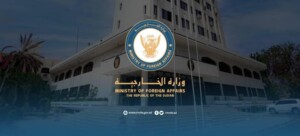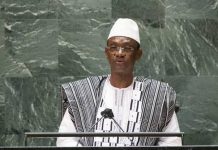The Sudanese Ministry of Foreign Affairs (MoFA) has dismissed recent reports declaring famine in parts of the country, calling them “inaccurate” and accusing international organisations of using the claims to undermine Sudan’s sovereignty and enable foreign interference.
In a statement issued today in response to a UN Security Council briefing on Monday, which discussed a report on famine in Sudan, the MoFA alleged that such “fabricated claims” aim to destabilise the country and “transform Sudan into a nation of refugees and displaced people”.
The report in question, issued by the Integrated Food Security Phase Classification (IPC) on December 24, officially declared famine in five areas of North Darfur and Kordofan, and warned that famine could spread to additional areas including El Fasher, the capital of North Darfur.
The ministry rejected the findings of the report, claiming that they “do not reflect an objective and accurate description of the reality of food security in Sudan”, “ignore reliable scientific indicators” and “fail to follow agreements reached with Sudanese experts”, adding that the data used is outdated “as no field surveys have been conducted since 2022”.
The statement accused the IPC of leaking the report to the media before formally sharing it with the Sudanese government, calling this a “deliberate move to tarnish Sudan’s image”.
‘Surplus production’
The ministry argued that Sudan’s agricultural output contradicts famine claims, stating that sorghum and millet production for this season “is projected at 7-8 million tonnes, exceeding local consumption needs of 4.5-5 million tonnes”.
This surplus, the ministry argued, “completely negates allegations of famine” and instead “demonstrates Sudan’s capacity to enhance regional food security”.
However, Radio Dabanga has extensively covered the struggles of Sudanese farmers, who face challenges such as heavy rains reducing crop yields, cash shortages, soaring prices, and insecurity due to the ongoing war.
‘RSF to blame’
The MoFA attributed the humanitarian crisis in some areas to the Rapid Support Forces (RSF), accusing the paramilitary group of a “deliberate starvation policy” amounting to international crimes.
It criticised international actors for failing to address the situation in Zamzam camp, despite the reopening of the Adré border crossing in August 2024. “The same parties that declared a famine in Zamzam camp last August, and considered opening the Adré crossing the only solution, have done little to improve the situation in the five months since,” the ministry said. It alleged that the RSF continues to attack and shell the camp with heavy artillery and drones.
Political fallout
News of the incoming IPC report in late December had provoked Sudan’s acting agriculture minister, Abubakr El Bishri, to sever ties with the food security watchdog. This drew concern from the United States and the United Kingdom, who called on Sudan’s Transitional Sovereignty Council to resume cooperation with the IPC during the UNSC briefing.
El Bishri previously denied famine reports in a September interview with Al Jazeera.
Lt Gen Abdelfattah El Burhan, chairperson of the Transitional Sovereignty Council and commander-in-chief of the Sudanese Armed Forces (SAF), dismissed reports of famine in Darfur as “pure fabrication” during his televised address on Sudan’s Independence Day.
In an interview with Radio Dabanga, Adam Rijal, spokesperson for the General Coordination for Displaced Persons and Refugees, labelled El Burhan’s denials as “a continuation of the tactics used by the former regime” and accused authorities in Port Sudan of using starvation as a weapon, a strategy he deemed a war crime.
On Friday, January 10, the Sudan Sanctions Committee, established under UN Security Council resolution 1591 (2005), will hold a closed informal session to discuss the final report of its Panel of Experts, distributed to Council members on December 23.
The post Sudan famine reports ‘facilitate foreign interference’, says MoFA appeared first on Dabanga Radio TV Online.
Source: dabangasudan









